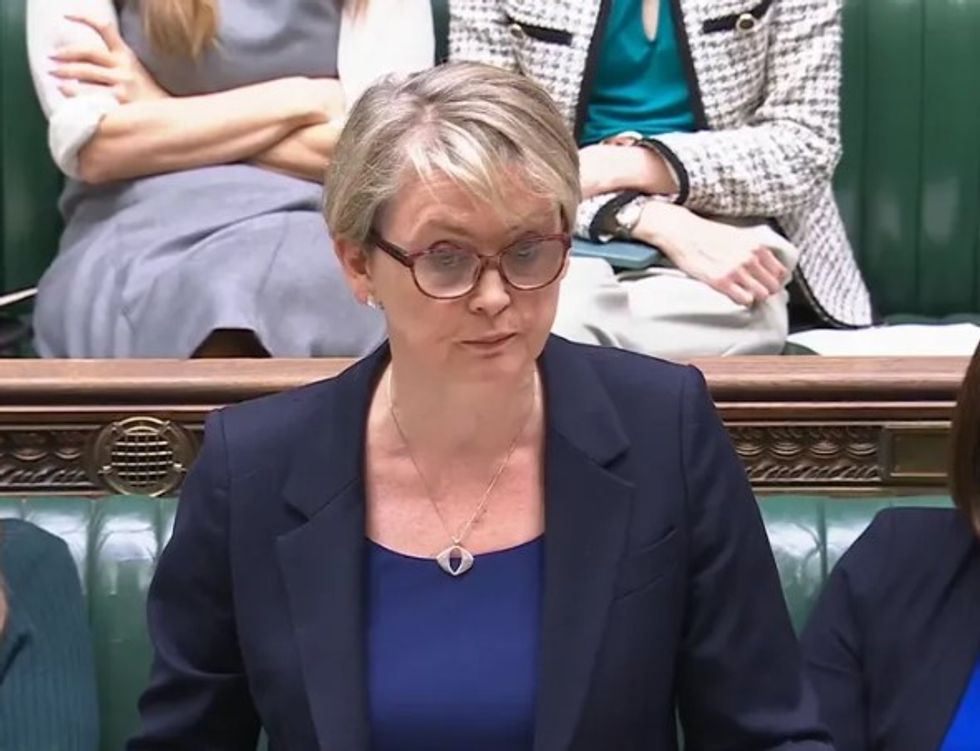



Legal expert Fadi Farhat has claimed that the United Kingdom lacks any explicit legal requirement to provide immediate housing for asylum seekers, contradicting common assumptions about international refugee obligations.
Speaking on GB News, the legal consultant explained that whilst nations must establish humane reception arrangements for asylum applicants, no specific housing rights exist under international law.
"There's no explicit right. When asylum seekers make their applications, you have to have humane reception arrangements which may include housing but there's no explicit right," Mr Farhat stated.
The revelation comes amid intensifying political discourse surrounding immigration policy, with various parties proposing dramatically different approaches to asylum seeker accommodation.

Mr Farhat claimed many of the provisions in place for asylum seekers are not due to international conventions
|GB NEWS / PA
Mr Farhat emphasised that Britain's current generous provisions represent political decisions rather than legal necessities.
"There's this disconnect between what the Refugee Convention says and how we have implemented it as a political choice," he explained, suggesting these policies could be reconsidered as part of broader immigration reform discussions.
The legal consultant highlighted how Home Secretary Yvette Cooper's recent suspension of the family reunion scheme demonstrates the discretionary nature of such policies.
"Technically, the Refugee Convention does not contain provision about family reunion. We implemented that into our law," Mr Farhat noted.
This distinction between international requirements and domestic implementation became particularly evident when examining comparative approaches across Europe.
GB News star Martin Daubney argued that European Union member states enforce significantly harsher deportation policies whilst being more restrictive with asylum accommodation provisions.
Martin Daubney furiously calls out 'disgusting' outlets for branding Epping protesters 'far-right'
"I put it to you that Britain is a soft touch," Martin stated during the discussion.
The lawyer acknowledged this assessment, responding: "Countries implement the convention in different ways."

Fadi Farhat pointed to Denmark as an example of a country with harsher asylum provisions than Britain
|GB NEWS
Martin pressed further, asserting: "We've made a choice to be more open-armed, more forgiving, more liberal, even than socialist states like Denmark."
"Which is a good thing or bad thing depending on which side of the political spectrum you're on," Mr Farhat concluded.
Denmark's approach to refugee family reunification starkly illustrates the variations in how nations interpret international conventions, according to Mr Farhat's analysis.
"Let's look at Denmark, which the left holds as a bastion of socialism, it allows family reunion provisions after you have been granted refugee status after two years," the legal consultant explained.
 Yvette Cooper has recently introduced an overhaul to the asylum system | POOL
Yvette Cooper has recently introduced an overhaul to the asylum system | POOL
This contrasts sharply with Britain's previous policy, which permitted family reunification almost immediately.
"Before Yvette Cooper suspended the scheme, you could be granted it here, strictly speaking, the next day after being granted refugee status," Mr Farhat noted.
The comparison drew a pointed response from Martin, who simply stated: "That's a choice."
These policy differences demonstrate how nations exercise considerable discretion in implementing refugee conventions, with Britain historically adopting far more generous provisions than many European counterparts.
The suspension of immediate family reunion rights marks a potential shift in UK policy, though it still leaves Britain's approach considerably more liberal than Denmark's two-year waiting period.
The immigration debate has intensified following Robert Jenrick's proposal for asylum seekers to be housed in what he termed "rudimentary prisons" rather than current accommodation.
The shadow justice secretary criticised Reform UK's immigration plans as insufficient, stating: "They should be detained in camps. The facilities will need to be rudimentary prisons, not holiday camps."
Mr Jenrick's comments followed his visit to protests outside the Bell Hotel in Epping, where approximately 130 refugees are housed.
The facility became a flashpoint after Ethiopian asylum seeker Hadush Kebatu was convicted of sexually assaulting two teenagers.
Meanwhile, Justice Secretary Shabana Mahmood acknowledged that European nations view Britain as adopting a "maximalist" interpretation of the European Convention on Human Rights.
"If you talk to colleagues across Europe, there is a view that Britain is maybe more at the maximalist end of the spectrum when it comes to interpreting how we might comply with our international obligations," Ms Mahmood told the Lords Constitution Committee.
